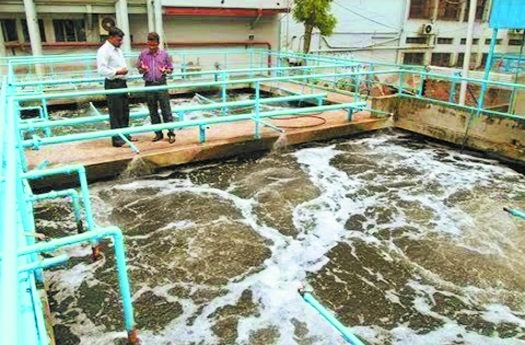[ad_1]

Business Bureau :
MAHARASHTRA, a leading contributor to India’s textile and apparel output, also has the highest number of polluted rivers in the country. A 2019 report by Maharashtra Pollution Control Board (MPCB) stated that about 67 per cent of textile industries are polluting. Centre for Responsible Business and The ReFashion Hub have come up with a set of policy recommendations that can promote wastewater reuse and water stewardship to address the issue of water contamination and water scarcity in the State.
The nation-wide campaign has been launched in collaboration with Alliance for Water Stewardship and YWater to raise awareness on wastewater reuse in the textile industry. In Maharashtra, industrial plants are rated on a scale of one to five stars based on their level of particulate emission. While five stars are indicative of compliance, one star is indicative of high pollution and non-compliance. As per MPCB, overall in Maharashtra, 20 textile units have been found to be under the “two star” category while 23 textile units have been found to be under the “one star” category. Devyani Hari, Director Programmes, CRB, said, “The water crisis in Maharashtra is of serious concern, which has led to a gamut of water sector reforms and programmes. The State Water Policy programme took shape in 2003, followed by the Maharashtra Water Resources Regulatory Authority (MWRRA) formation in 2005. Such programmes and reforms aim to adopt a multi-sector approach to better manage water, with the river basin as the development unit.”
“It involves stakeholders and water users from multiple industrial sectors and the agriculture sector in determining prices, water allocation, etc. In 2019, the State Government stepped upon its commitment to promote wastewater reuse,” she said. Several regulations have come into force to mandate wastewater reuse treatment in industrial processing, such as cooling in thermal power plants, heavy machinery, and other non-potable purposes. “It has created Water Entitlement Transfer (WET) provisions and issued Wastewater Reuse Certificates (WRC). At present, industries situated within Maharashtra Industrial Development Corporation’s (MIDC) areas are mandated to recycle up to 50 per cent of their water consumption,” she added.
Several virtual stakeholder consultations and meetings were organised in Maharashtra by CRB with support from The Refashion Hub to gauge awareness on water reuse and wastewater treatment. Inputs were sought from stakeholders in the Maharashtra textile industry, on the current scenario of wastewater reuse in the textile industry and what policies and incentives can bring a positive transformation. Several stakeholders had opined that a regional approach was essential to address water scarcity and pollution. Data collection through studies on water sources, water availability, and quality against the water tables (underground and surface level) in the region would help in developing water indicators.
[ad_2]
Source link








